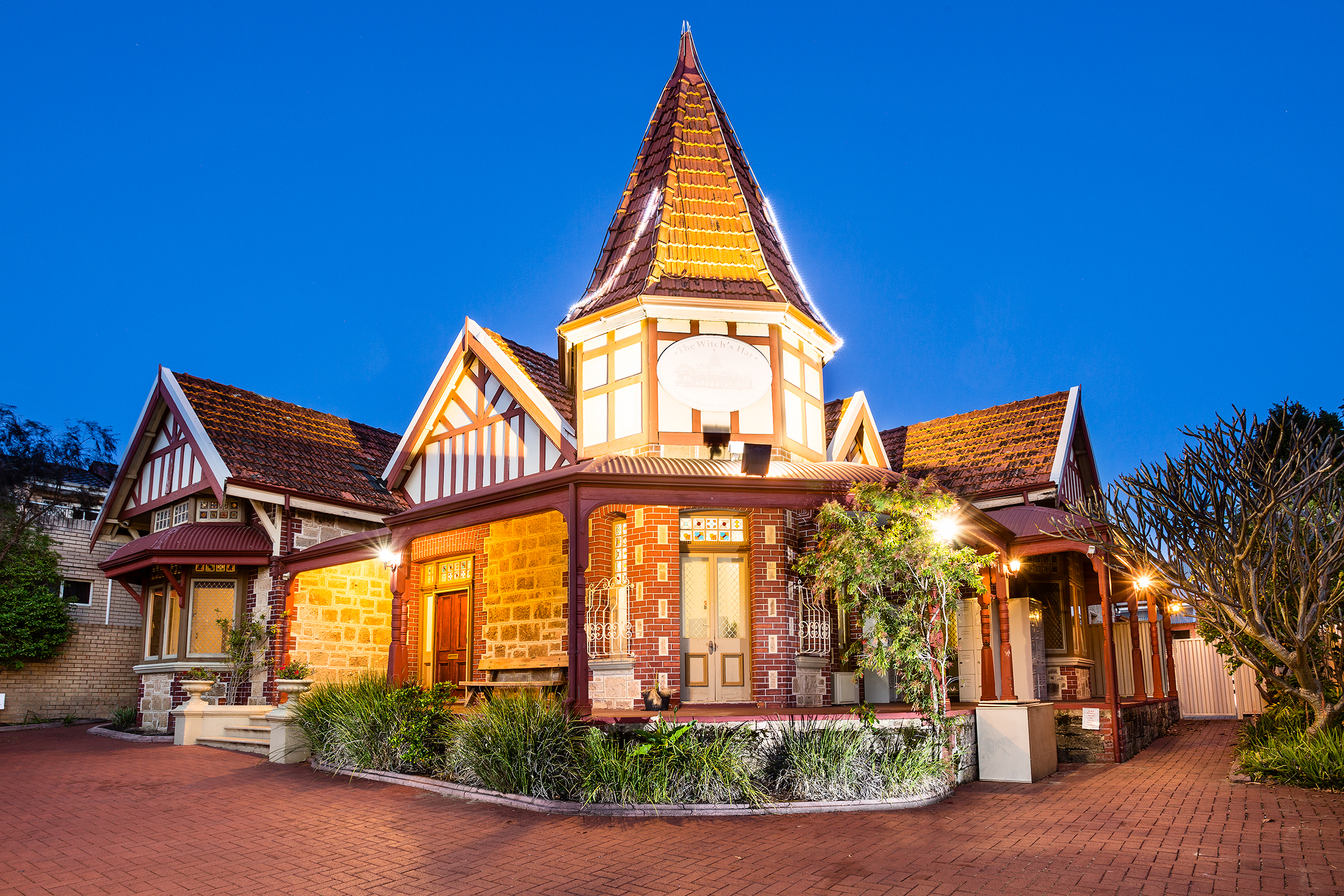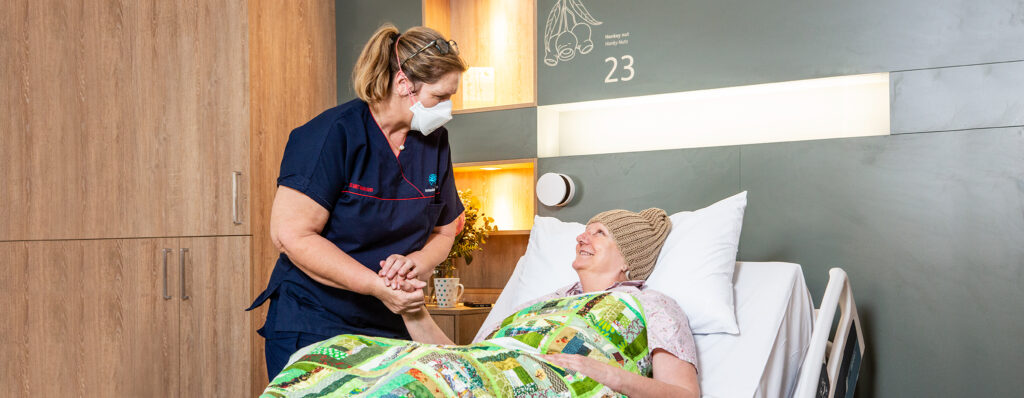Caring for our community
EMHS’ catchment includes a large portion of people experiencing homelessness due to mental health issues. Two new services were progressed in 2021-22 to offer support to this particularly vulnerable consumer cohort.
Mental Health Transitional Care Unit
Work to transform a former residential aged-care facility into a contemporary mental health unit was well underway by the end of June 2022, with the first of the two-part development scheduled to open later in the year.
St James Transitional Care Unit – Bidi Wungen Kaat Centre — will provide support for up to 40 people aged 18 to 64 years, providing continuity of care as they transition from hospital back into the community, or to keep them from needing ED admission.
The unit will be made up of two 20-bed units:
- a Prevention and Recovery Unit, which will provide short-term care, and
- a Rehabilitation and Recovery Unit that will provide care for periods up to approximately six months.
The new facility will be staffed around the clock by skilled mental health clinicians and peer-support workers and will fill an important gap in support for people in the community who are experiencing a mental illness.
Individuals assessed as being ready and able to participate in a mental health rehabilitation program while living in a community setting will be accommodated in the unit, which will adopt a model of care that has been successful in the eastern states and internationally.

Medical Respite Centre
In October 2021, EMHS partnered with several community organisations to open a service that was aimed at improving the recovery prospects of newly discharged patients experiencing homelessness.
Located in the inner-city suburb of Northbridge, the 20-bed Medical Respite Centre (MRC) provides safe and therapeutic short-term accommodation for consumers who — while not sufficiently unwell to continue occupying a hospital bed — are too unwell to return to living on the streets.
Those whose referrals are accepted can spend up to14 days at the facility, during which time they recuperate in a stable environment supported by nurses, a GP, support workers and addiction in-reach services provided by the RPBG Consultation Liaison and Alcohol and other Drug Service.


